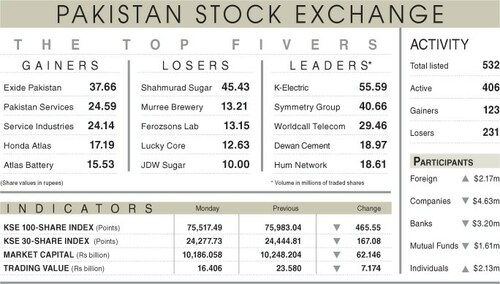NEW DELHI: India’s future interest rate hikes should be carefully calibrated and its intervention in the foreign exchange market should be limited to managing volatility, the International Monetary Fund (IMF) said on Friday.
The Reserve Bank of India (RBI) has raised its key policy rate by 225 basis points since May, taking the rate to the highest in over three years.
“Inflation pressures have led to an appropriate shift towards policy tightening,” IMF said in an annual consultation report. The report is prepared by IMF staff in accordance with its Article IV of Agreement, which requires the fund to hold annual consultations with officials from member states about economic development and policies.
“Additional tightening should be carefully calibrated and communicated,” it added.
Last week, minutes of the RBI’s monetary policy meeting showed a majority of rate-setters were concerned about elevated inflation and felt the central bank could not afford to prematurely pause its rate tightening cycle.
The IMF projected inflation at 6.9pc for the current fiscal year that ends on March 31, 2023 and said price gains would moderate gradually.
The world’s fifth-largest economy is broadly tipped to outperform its major global peers in the year ahead, supported by pent-up post-pandemic domestic demand, investment and credit growth, analysts say.
However, the IMF expects India’s economic growth to moderate reflecting a less favourable outlook and tighter financial conditions, projecting 6.8pc growth for the current fiscal year and 6.1pc for the next fiscal year that starts on April 1.
“Uncertainty around the outlook is high, with risks tilted to the downside,” the Washington-based fund said.
A sharp global growth slowdown in the near-term would affect India through trade and financial channels. It projected the current account deficit to widen to 3.5pc of GDP in the current fiscal year as a result of both higher commodity prices and import demand.
The fund said the exchange rate should act as a “shock absorber” and that the RBI should only intervene to address disorderly market conditions.
India’s foreign reserves had fallen around $100bn from its peak of October 2021, but have since recovered partially due to the resumption of dollar inflows.
Fiscal consolidation should be more ambitious than the current baseline, targeting additional general government primary consolidation of around 1pc of GDP by 2027-28, the report said.
Published in Dawn, December 25th, 2022













































